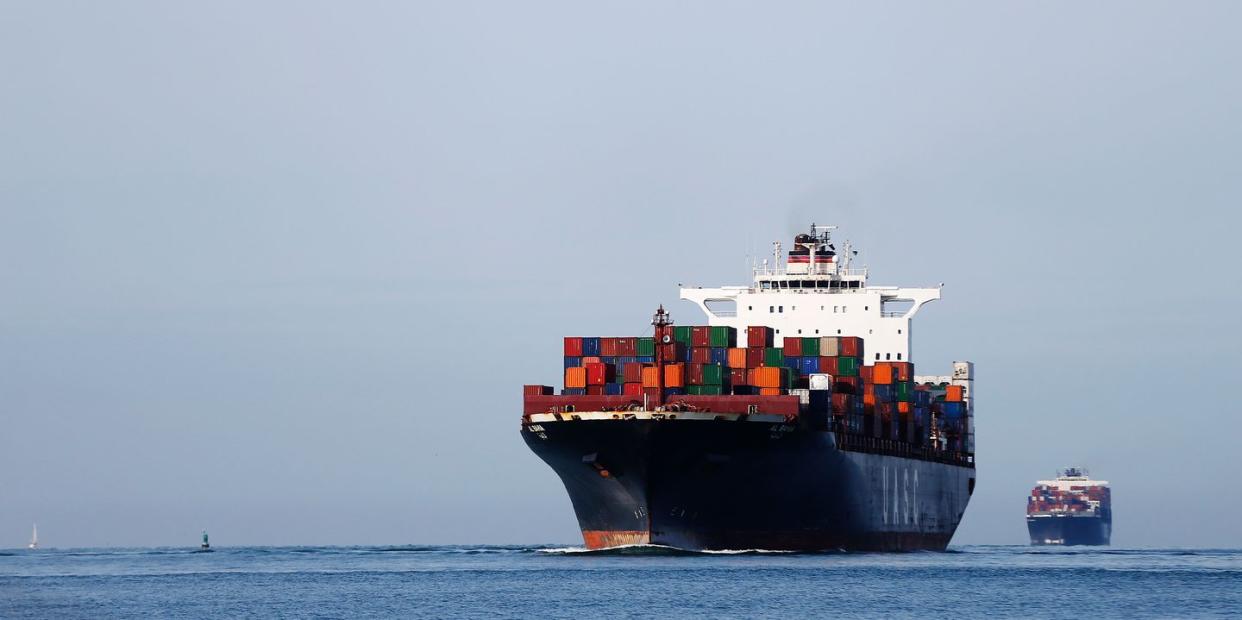Should Ships Have Speed Limits?

The BBC reports that UN officials will impose an international shipping speed limit.
Cargo container shipping propels the world economy, with new technological advancements all the time.
The only arguments in the industry are over the best way to meet emissions goals.
This week, officials from the UN will meet to hear proposals to cut shipping industry emissions by introducing speed limits, the BBC reports. Container ships and other ocean liners in the industry deal with a lot fewer of the complications that overland vehicles face, and limiting speed could be an easy way to kick off an industry move to reduce emissions by 50 percent in the next three decades. Some within the industry disagree with the idea of speed limits, but all are united to reduce emissions—they just disagree how best to do that.
Enforcing a 20 percent speed reduction across the industry would lower greenhouse gas emissions by nearly 25 percent and drastically cut other environmental factors like marine noise pollution and whale collisions by up to 75 percent, according to a report by an advocacy group called Seas at Risk.
Because ships are legally allowed to burn fuel considered “dirty” in most other contexts, they also generate a lot of black carbon waste material that floats in the atmosphere and settles in places where it contributes to global warming by literally, because it’s black, gathering and retaining more heat instead of reflecting it.
If you don’t think about the shipping industry very often, you may not know the gigantic scope of waterway shipping. Despite the widespread adoption of air flight as the major mode of human travel over oceans, most goods on Earth that cross oceans still travel by cargo ship. In the past, cargo ships and overland trucking were much more expensive than they are today. Both modes of transport, under the same shipping umbrella, were revolutionized by container technology.
Trucks can pull into port facilities and have their entire trailers lifted off and onto ships without the interim step of moving individual items from one to the other. Manufacturers know how to plan for exactly the right container shape and limitations and can tune packaging and pallets to perform most efficiently. It’s hard to overstate what a huge difference this made in the international economy, and for better or worse, containerization is the foundation of the globalized economy we have today.
Containers aren’t the only form of cargo by a long stretch, but the low cost of container shipping can offset the more costly modes. And over the decades, speeds increased, until in 2008 the industry made a move to save fuel by running at very slow speeds. Maersk, a gigantic Danish conglomerate and the world’s container shipping leader, participated in that slowdown and commented to the Guardian at the time, “Slow steaming is here to stay.”
Today, Maersk is one of the dissenters on the move to slow steaming even further. Proponents say this is the best first step because of how easy it is to enforce: Ships are tracked on radar for their entire journeys, and calculating their speed is a matter of simple arithmetic. Unlike land travel, ships almost never get caught in the equivalent of traffic jams, which throw off studies of vehicle emissions because of the waste associated with idling in traffic.
Maersk’s objection is that speed isn’t the best way to measure who’s being efficient. The BBC reports that a senior Maersk leader said, “We rather support the principle of applying power limitation measures.”
Maersk made news in 2018 for a new shape of sail, and is invested in making the entire industry more efficient. Again, the differences between passenger automobiles and cargo ships come into play.
Cars and SUVs are generally carrying people over short distances that aren’t wildly affected by a speed limit one way or the other. Shipping companies are on strict timetables that inform how quickly goods get to market, and in turn, how companies fulfill orders. A ship that can meet the same emissions goal while traveling faster isn’t just more efficient, but it also has a pointed and saleable advantage over companies that can’t make speed as efficiently.
The UN is relying on the report from Seas at Risk, and the group’s salesperson told the BBC that an immediate speed limit is an unavoidable short-term goal for cargo shipping. Maersk’s objections make sense and will likely come into play in the longer term, but Seas at Risk insist speed limits are the most easily enforced and effective behavior change for now.
You Might Also Like

